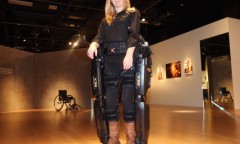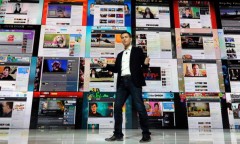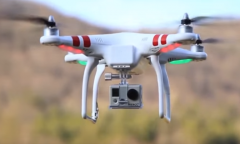By Iesha Javed, | September 11, 2016

Twin Towers Attack
Ever since the September 11 attacks on the World Trade Center in New York, the US and other major technological superpowers have been investing heavily in technology that can help improve security and prevent future attacks.
Since 2001, the US government has invested heavily in promising tech start-ups as the 9/11 attack is seen as a technological failure rather than a military one.
Like Us on Facebook
1. Spotting and fixing vulnerabilities:
One of the most profound ways that 9/11 changed the thought-process for technocrats is that they have since been trying to figure out what exactly went wrong and how to fix it.
Some of the major issues that came to the fore were a lack of intelligence information about the attack, failure to detect the hijackers and prevent them from carrying weapons on board, as well as building collapse and communications failure in the aftermath of the incident.
In particular, the vulnerabilities and risks posed by the Internet also became clear and preventing cyber attacks by terrorists became ever more important.

US airports now use full body imaging screeners, facial recognition software that can detect unpleasant expressions, and cameras that can predict hostile behavior by flagging individuals with unusual body language. The traditional paper-based ID system has also been replaced with biometric scanners that prevent criminals from swapping identities at immigration checkpoints.
3. Improved Internet, communication networks, and first respondent services:
Among the immediate effects of the tragedy was that people wanted to know that loved their ones were safe, but could not reach them due to the failure of communication lines.
Even first respondent services like the fire department, NYPD and the 911 were unable to communicate among themselves, resulting in complete chaos. This has spurred several attempts to improve cellular communications and provide emergency services with the second line of communication in case of network failure.
A major development has been the use of peer-to-peer technology to share critical information and enable people to know that their family and friends are safe.
The internet is said to have become more robust, and some steps have been taken to take care of vulnerabilities and prevent cyber warfare.
4. Using AI to combat terrorists, detect and diffuse explosives:
Authorities now employ Artificial Intelligence systems - especially robots - to combat terrorists and get rid of explosives. This has been done to reduce the risk posed to human bomb disposal squads. MIT's I-Robot, which was created specifically for bomb demolition, is an example of this new technology.
Another major advancement has come in the form of unarmed aerial vehicles and unmanned aerial vehicles or drones which have unlimited prospects in the areas of surveillance and remotely controlling security situations.
5. Rich data mining:
The mining of unstructured data to extract intelligence has been one of the main focus of investments since 9/11. Emails, social networking messages, VOIP calls, photo uploads, and website traffic all provide critical information about individuals and their activities.
With increased data surveillance, agencies can track down suspects at the slightest hint of suspicious behavior. This has, however, raised a raging debate about the loss of privacy. Some advocate for limiting the government's access to the personal data of internet users.
-
Use of Coronavirus Pandemic Drones Raises Privacy Concerns: Drones Spread Fear, Local Officials Say

-
Coronavirus Hampers The Delivery Of Lockheed Martin F-35 Stealth Fighters For 2020

-
Instagram Speeds Up Plans to Add Account Memorialization Feature Due to COVID-19 Deaths

-
NASA: Perseverance Plans to Bring 'Mars Rock' to Earth in 2031

-
600 Dead And 3,000 In The Hospital as Iranians Believed Drinking High-Concentrations of Alcohol Can Cure The Coronavirus

-
600 Dead And 3,000 In The Hospital as Iranians Believed Drinking High-Concentrations of Alcohol Can Cure The Coronavirus

-
COVID-19: Doctors, Nurses Use Virtual Reality to Learn New Skills in Treating Coronavirus Patients











